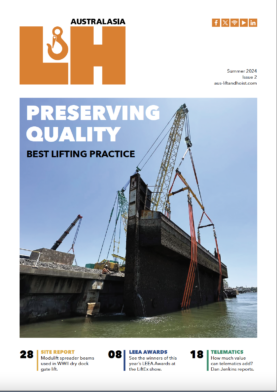)
Australian PMI®: Drought, bushfires and coronavirus compound manufacturing slowdown
The Australian Industry Group Australian Performance of Manufacturing Index (Australian PMI) fell a further 1.1 points to 44.3 in February to its lowest result in almost five years, the first time the index has recorded four consecutive months of contraction since 2014.
While the majority of Australian PMI respondents remain concerned about drought, weak demand from the construction sector and a general slowdown in the economy, coronavirus emerged as a concern for respondents for the first time in February, impacting negatively on the exports of Australian manufactured goods.
“The manufacturing sector recorded a fourth consecutive month of contraction with the impacts of drought and the devastating bushfires continuing to be a drag on the sector,” said Ai Group chief executive Innes Willox. “The disruptive effects of the coronavirus, including on supply chains, are deepening and adding to the slowdown that has been in train since the closing months of 2019. The large food & beverages sector was the only sector that expanded in February with all other sectors experiencing steeper falls than in January.”
Six of the seven activity indices in the Australian PMI contracted in February, with employment the only index being broadly stable, up 0.7 points to 49.1 (readings below 50 points indicate contraction in activity, with the distance from 50 indicating the strength of the contraction). Production (down 4.8 points to 40.4), new orders (down 2.0 points to 41.7), sales (down 2.3 points to 43.1) and exports (down 5.3 points to 44.5) all contracted at a faster pace than the previous month.
All six manufacturing sectors in the Australian PMI experienced weaker conditions in February than in January. Food & beverages remains the only manufacturing sector in expansion (down 1.9 points to 55.0), but even it has fallen significantly in recent months. Coronavirus is negatively impacting the exports of Australian manufactured goods, particularly consumable items into China, while the ‘heavy’ manufacturing sectors are reporting supply chain difficulties because of factory shutdowns in China.
The input prices index slowed by 4.5 points to 57.4 in February, falling well below the long-run average for this index of 67.6 (since 2003) and the lowest reading since May 2013. The selling prices index recovered 3.8 points to return to broad stability at 50.4 points. The average wages index, trending down since its recent mid-2018 peak, edged lower again in February (down 0.3 points to 54.9).
“The coronavirus is negatively impacting the exports of fast-moving consumable items to China and a number of businesses reported supply chain difficulties arising from factory shutdowns in China,” Willox added. “Drought conditions continue to be raised as a negative factor despite the rain in some parts of the country. While the fallout from the bushfires was again reported as disrupting activity, fewer manufacturers identified this as a major detractor.”`









